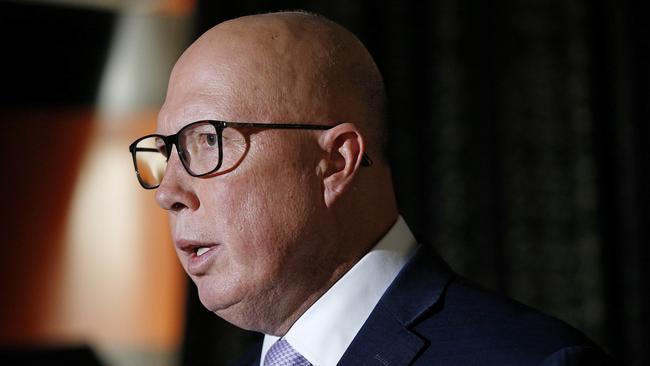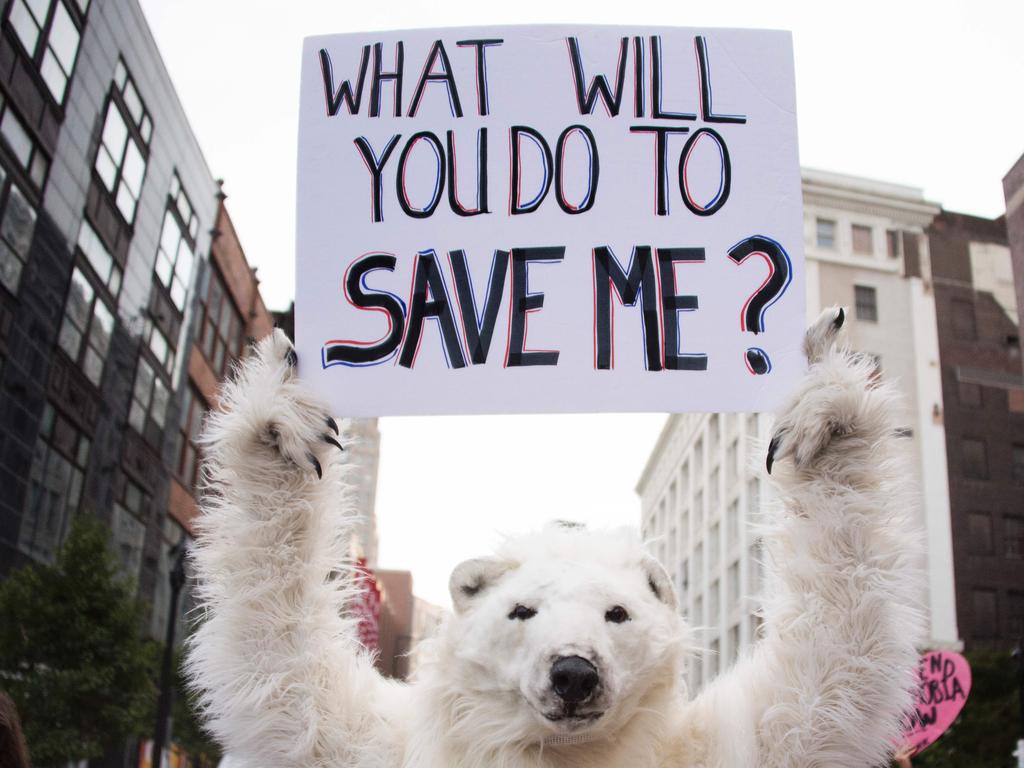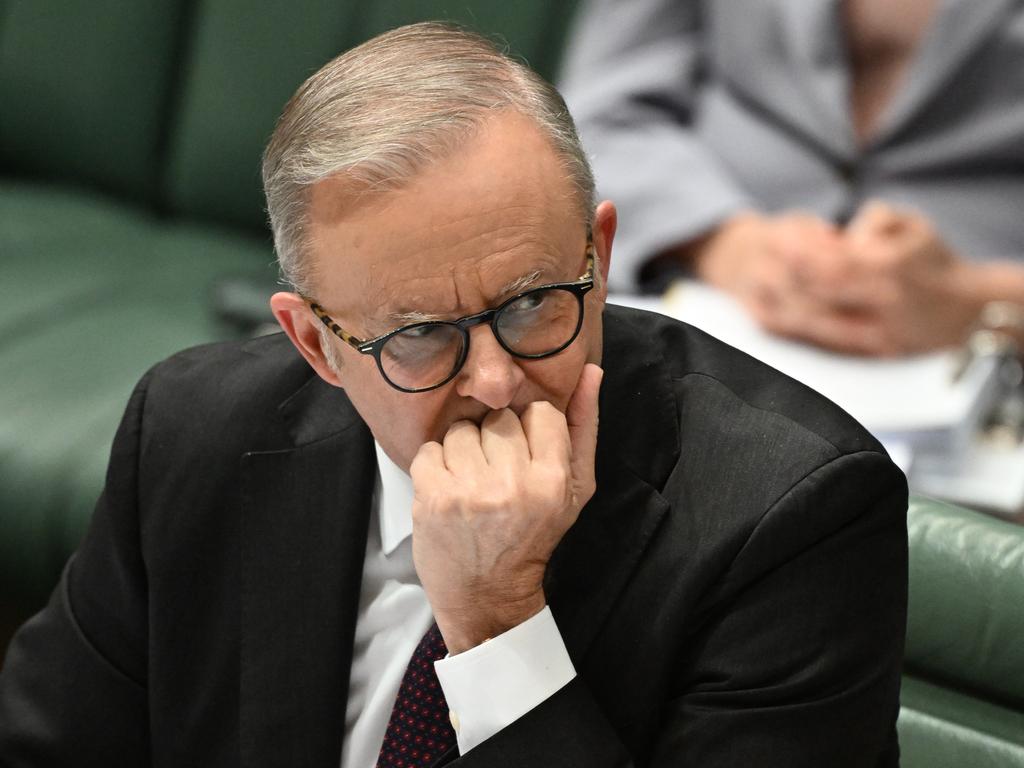Paris Agreement drafter Andrew Higham says a future Dutton government would not be forced out over a lower target
An author of the Paris climate agreement says a future Coalition government wouldn’t be forced out of the pact if it adopted a lower 2030 target than Labor.

The man responsible for drafting the Paris Agreement says a future Coalition government wouldn’t be forced out of the international treaty on climate change if it adopted a lower 2030 emissions reduction target than Labor’s 43 per cent goal, but warned the move would be unprecedented.
The warning from Andrew Higham, a former senior adviser and manager at the UN Framework Convention on Climate Change, came as Peter Dutton confirmed he wouldn’t take a new 2030 or 2035 target to the next election but rather consider them if he won office based on the economic conditions at the time.
As flagged by The Australian on Monday, the Coalition is arguing detailed modelling and economic impact assessments must be conducted before committing to interim goals on the road to net zero instead of promising “unachievable” medium-term targets.
The Opposition Leader refused to say if he would adopt a lower 2030 target than the Albanese government, despite vowing to reject Labor’s 43 per cent goal at the election.
Anthony Albanese accused Mr Dutton of walking away from a 2030 commitment and the Paris Agreement, which he said would lead to less certainty and investment in Australia.
Mr Higham, now a visiting fellow at Oxford University and co-founder of Future Climate Co-operation, said it would be a “rather embarrassing situation” for a Dutton government to put forward a lower 2030 target.
“We don’t have a precedent for it other than when (Donald) Trump was elected in 2016 and of course he pulled the nationally determined contribution (target) of the US and then threatened to withdraw (from the accord),” he said.
“That is essentially the situation we’re facing here. It’d be the first time a government would stand up in front of the other parties to the treaty and say ‘we’re not able to honour the commitment we’ve made and that we’re going to have to go backwards’.”
Parties to the Paris Agreement, including Australia, “shall communicate a nationally determined contribution every five years”.
Targets can only ratchet up, not down, but Mr Higham said there wouldn’t be “any forcing” out of a Coalition government with lower targets.
“That’s not what will happen. It’s more about the reputation Australia would have with not being good on what it said it would do and the ramifications across other forums, including in the security and trade environment,” he said.
Pressed repeatedly on whether the Coalition would put forward a lower target than Labor, Mr Dutton said: “It means that we’re committed to net zero by 2050 and that we need to make sure that we don’t harm Australian families and businesses in the interim. At the moment, that’s what Labor is doing. In terms of the targets otherwise, we’ll make those decisions when we’re in government.
“The Labor Party can try and please people in Paris. My job is to take care of the Australian people, and that’s exactly what I would do as prime minister. We’ll look at the prevailing economic conditions after the next election, and we’ll make announcements in due course.”
The Prime Minister said Australians didn’t want a seventh federal election – which is due within 11 months – fought on climate change.
“For Peter Dutton to walk away from any 2030 commitment, to be clear, is walking away from the Paris Agreement,” Mr Albanese said.
“Peter Dutton is proposing abandoning the targets, abandoning investment certainty which will lead to less investment in the lead-up to 2040, at some time when this nuclear fantasy will take place.
“The business community has been very clear and when we announced our position, we did so standing with the Business Council of Australia and other business leaders who all have been asking for certainty.”
While Mr Albanese and Climate Change and Energy Minister Chris Bowen are insisting the government is on track to reduce emissions by an “ambitious” 43 per cent by the end of the decade, Mr Bowen conceded there had been a backlog of renewables projects and issues with the rollout.
“Yes, and we have more to do,” the minister said, pointing to the Capacity Investment Scheme, a New Vehicle Efficiency Standard and state agreements on renewable energy transformation.
“We have seen some emissions reduction, but I agree we have much, much more to do. I’m pleased with what we’ve done in our first two years. I’m not yet satisfied.”
Greens leader Adam Bandt said neither of the major parties had targets strong enough to meet the Paris goal of limiting global warming to less than 2C and would “blow” the accord by bringing on more coal and gas.
“Scientists say if we overshoot 2C, climate change could become runaway and nothing that our kids or grandkids do will be able to stop it,” Mr Bandt said.
“Meanwhile, with the Liberals completely ignoring the Paris Agreement, Anthony Albanese is out crying Paris crocodile tears when his targets won’t meet the Paris Agreement goals either.”







To join the conversation, please log in. Don't have an account? Register
Join the conversation, you are commenting as Logout